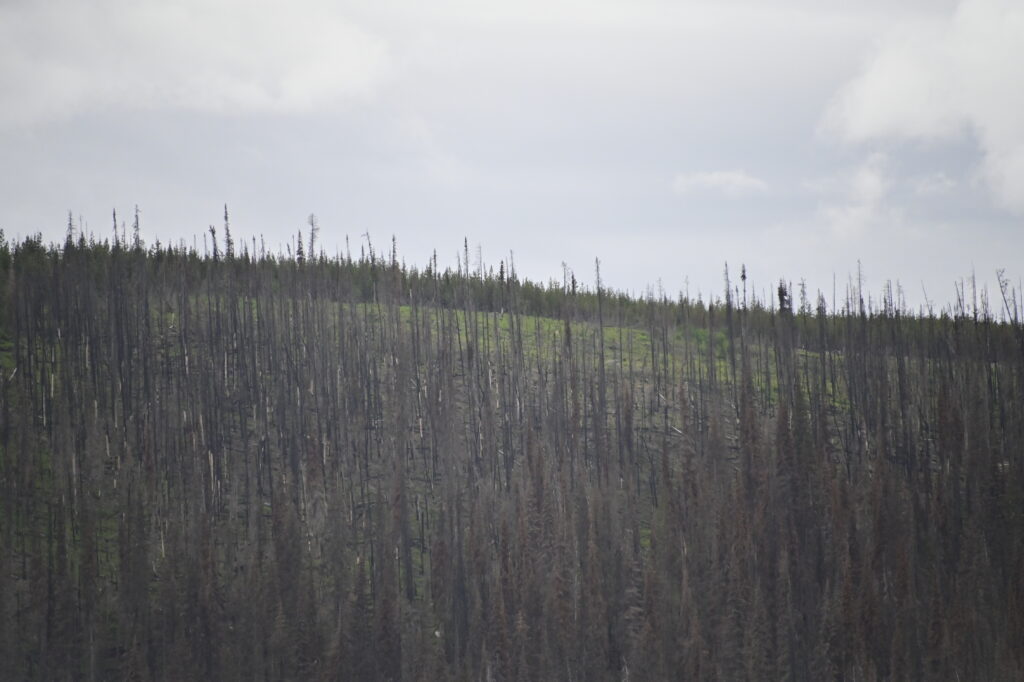The BC Government has published the Preliminary Strategic Climate Change Risk Assessment to predict how climate change will affect our province. Weather is unpredictable, but generally will be warmer with an increasing number of extreme weather events like heat domes, atmospheric rivers, droughts, wind patterns, and fires. Excessive heat is harmful to the environment, human health, and living things in general.
Wildfires:
- A warming climate can lead to drought conditions and wildfires.
- Fire ravaged land sheds water more quickly, (hydrophobic) and leads to increased runoff, floods, washouts, landslides.
- Biodiversity threatened, and animals are displaced
- Burned dead trees no longer are transpiring water vapour and oxygen into the air
Snowpack and melt:
- Annual precipitation is predicted to increase but will be unpredictable
- Earlier and potentially faster peak melt for runoff
- Faster runoff increases flood and landslide risk
- May have decreased snowpack, with more precipitation coming as earlier rain
- More sediment and pollutant loading in drinking water reservoirs and aquatic ecosystems
- Higher water temperature during low-flow season affects fish health and water treatment
- Summertime environmental and human water supplies may become undependable
Impacts to biodiversity:
- Hotter weather leads to drought conditions which may cause increased erratic and unpredictable wildfires.
- Longer growing seasons can be expected which means more water will be needed
- Number of days below zero decreases and impacts ecosystems, and freeze-thaw cycles
- Flash flood storms potentially cause flooding, landslides and washouts
- Warmer waters cause algal blooms and other health risks to people and animals
- Shifts in ranges of pests lead to ecosystem changes.
- Changing forest conditions and the distribution of plants and animals, may negatively affect ecosystem health.
- Wildlife habitat and wildlife corridors are harmed.
- Trees and plants migrate because of altered conditions.
- Trees planted in plantations may not be right for the new climate situation.
- There is a strong need to revise forestry practices, to educate and align with the new climate.

